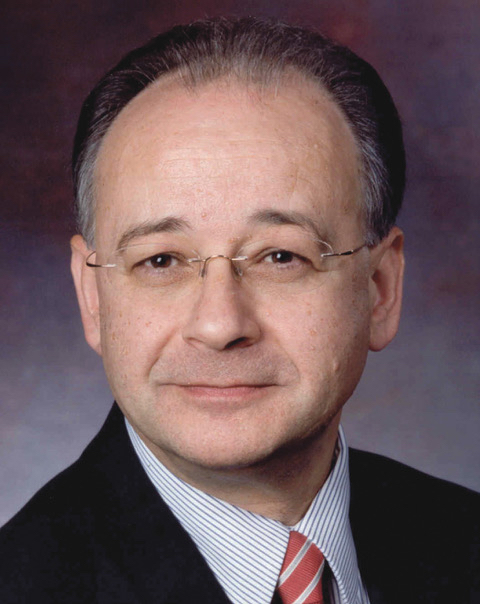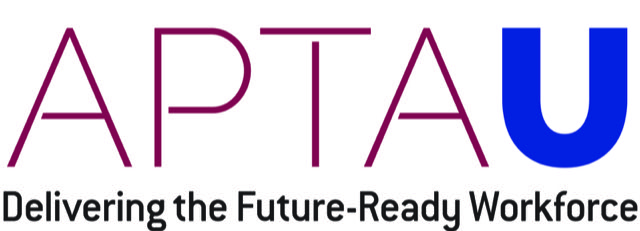When I think of workforce development, I am reminded of a quote by Henry Ford, founder of the Ford Motor Company.
He said: “The only thing worse than training your employees and having them leave is not training them and having them stay.”
Now more than ever, these words ring true because investment in a well-educated workforce is critical for the future of the transportation industry and for our nation’s economy and global competitiveness.
But how do we make investments in our workforce? What skills will be needed in the decades to come? How do we help current employees acquire new skills and attract new employees to the workforce who have these skills? These are questions that keep some public transportation leaders awake at night.
I firmly believe that making the right investments in lifelong learning is as critical for the public transportation industry as making the right investments in capital projects. More and more jobs in the public transportation industry are requiring postsecondary technical education and college-level math and computer skills. But the sad fact is that training budgets are often the first to be cut when we face budget cuts.
APTA’s Strategic Plan underscores the importance of innovation in helping the industry attract, recruit, train, and retain a skilled workforce. With more seasoned workers approaching retirement age, our industry is facing the challenge of attracting new talent, from the C-suite to the frontline.
In addition, demographic shifts have created a diverse, multicultural, and multi-generational ridership with differing needs that we need to ensure are met.
New technologies are transforming daily, how we serve our customers in this new mobility landscape where rideshares, e-scooters, and bikes have become part of the paradigm.
All these changes mean one thing for our industry – we need to embrace change. We need to be even more nimble. This means creating a work culture that emphasizes creative and strategic thinking, excellent communications skills, and collaborative teamwork. A culture that embraces the five different generations that make up today’s workforce: Traditionalists—born before 1946; Baby Boomers—born between 1946 and 1964; Generation X—born between 1965 and 1976; Generation Y, or Millennials—born between 1977 and 1997; and Generation Z—born after 1997.
This kind of diversity can certainly provide benefits in terms of the unique backgrounds and perspectives that each generation brings to the table. We need to be prepared to invest in tools and activities that offer our employees opportunities for apprenticeships, work-study programs with local business and schools, and certifications.
This is why APTA recently created a one-stop educational, professional, career, and workforce development center where our members can access professional development and career learning opportunities. Called “APTAU”, the center is strengthening and expanding APTA’s existing legacy training programs, including “Leadership APTA” and “Emerging Leaders”, education, and workforce development offerings.
This virtual portal provides real-time information and allows members to access resources for employees and post their best practices. It helps our members plan for, attract, and retain a diverse, skilled, and knowledgeable workforce to meet tomorrow’s needs.
APTAU will also provide workforce metrics to empower members to make data-driven decisions, such as analysis of which jobs are in most demand, specific skills needed, and career pathways that offer the highest potential for our members’ workforces.
Partnerships are paramount in providing the training and development for the industry’s workforce, so APTA works closely with organizations such as Eno; Conference of Minority Transportation Officials; Women’s Transportation Seminar, National Transit Institute; Transportation Learning Center; American Railway Engineering and Maintenance-of-Way Association (AREMA); University Transportation Centers, and Young Professionals in Transportation, among others, to support training and professional development for our industry’s current and future workforce. This is an area where we plan to expand even further.
Today, every industry competes for the best and the brightest workers. As public transit leaders, we are prioritizing continuous training and workforce development and we continue to embrace diversity and inclusion to make public transportation a welcoming career choice for all ages, cultures, beliefs, and sexual orientations.
We now have the opportunity to rethink how we have done things in the past and redefine the methods we use today to attract and retain the workforce of tomorrow and create a future-ready workforce.
It’s up to all of us to make this critical investment. It’s an investment in our nation’s future.


Paul P. Skoutelas is president and chief executive officer of the American Public Transportation Association (APTA). His entire career has been in public transportation, with more than 40 years spent in both the public and private sectors. He served as CEO of public transit systems in Pittsburgh and Orlando and as senior vice president for WSP USA, one of the world’s largest architectural and engineering firms.
Skoutelas has also served in leadership positions on numerous boards and committees for transportation organizations, including on APTA’s Board of Directors and Executive Committee, the Transportation Research Board, National Transit Institute, Pennsylvania Transportation Institute, and the Transit Cooperative Research Program.





